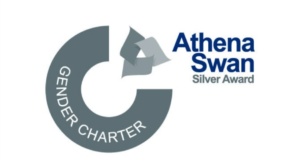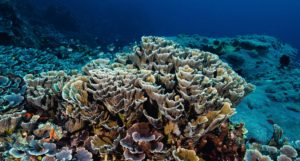Climate interventions to save our oceans need stronger governance

Climate interventions are accelerating in our oceans – but without responsible governance, they could do more harm than good, according to new research.
Coral bleaching, rising sea levels, and biodiversity loss are no longer distant threats – they are unfolding now, with profound consequences for marine ecosystems and the communities that depend on them.
In response, scientists, governments, and industries are racing to develop and deploy a suite of interventions to help the ocean respond to climate change.
The new study, published today in Science, reviewed the array of novel interventions that are being used in urgent response to the scale and intensity of the climate crisis and the dramatic changes in our oceans.
These include efforts to make the ocean less acidic to absorb more carbon dioxide, breeding climate-resilient corals that can survive warmer waters, farming seaweed to capture carbon, and restoring mangroves to protect coastlines and naturally store carbon.
Lead author Professor Tiffany Morrison, from the University of Melbourne, said while these interventions offer hope, they also carry significant risks.
“Without robust governance, we risk repeating past mistakes – implementing solutions that are ineffective, inequitable, or even harmful. The pace of innovation is outstripping our ability to regulate, monitor, and evaluate these interventions responsibly,” Professor Morrison said.
“Private and non-profit funding is accelerating the ambition. In 2020 alone, philanthropists had allocated $160 million to oceanic climate action, with another US$250 million announced at COP28 in 2023 for a new global Ocean Resilience and Climate Alliance.”
The researchers say to navigate these challenges, we must embrace the concept of responsible marine transformation – a governance approach that prioritises sustainability, equity, and adaptability.
“This means weighing risks against benefits, resolving ethical liabilities, improving social co-benefits, and aligning adaptation interventions with broader climate mitigation goals,” Professor Morrison said.
“It is vital we conduct rigorous, comparative studies to assess the climate benefits and risks of interventions, including their scalability and long-term viability.”
Co-author Professor Katrina Brown, from the University of Exeter, said communities must be engaged.
“This means collaborating with indigenous peoples and local stakeholders from the outset, ensuring their knowledge, values, and rights shape intervention design and implementation,” Professor Brown said.
“If interventions are proven viable, we must also develop and apply bioethical protocols that address not just animal welfare, but broader ecological and societal implications of upscaled deployment.”
This research was funded by the Australian Research Council (ARC) and the US Society for Nature and People Partnership and collaborators included James Cook University, the University of Michigan, the University of Exeter, the Gulf of Maine Research Institute, the University of Tasmania, and the Institute of Marine and Atmospheric Studies.
Professor Morrison was recently awarded an Australian Laureate Fellowship from the ARC to improve global marine futures.



